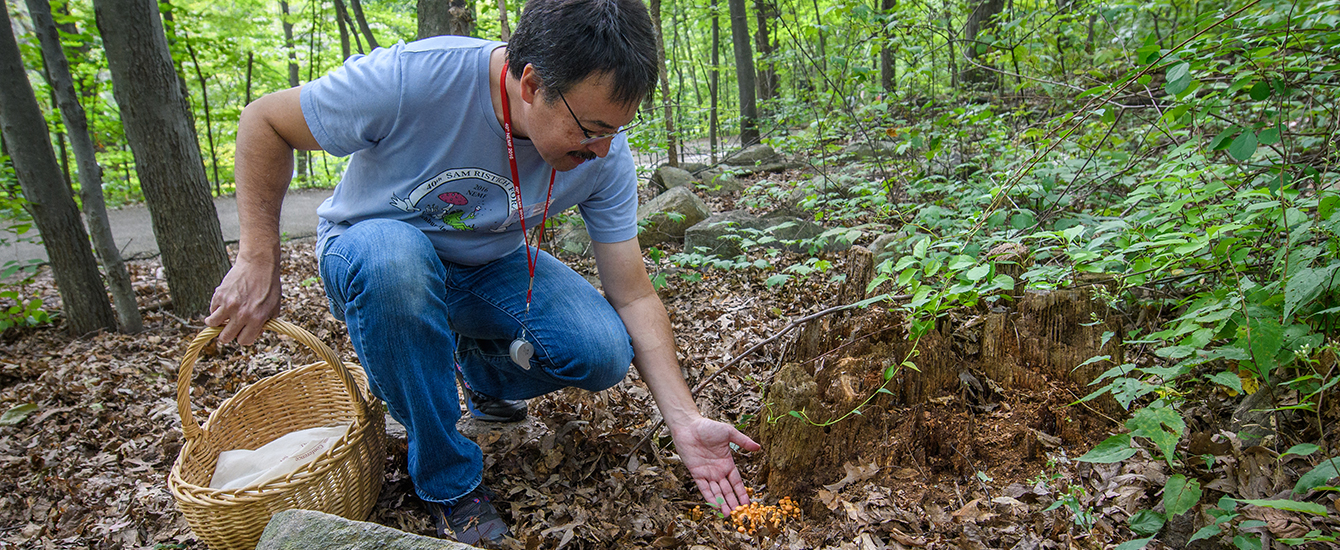Biology
Document Type
Article
Abstract
The Amsterdam Declaration on Fungal Nomenclature was agreed at an international symposium convened in Amsterdam on 19-20 April 2011 under the auspices of the International Commission on the Taxonomy of Fungi (ICTF). The purpose of the symposium was to address the issue of whether or how the current system of naming pleomorphic fungi should be maintained or changed now that molecular data are routinely available. The issue is urgent as mycologists currently follow different practices, and no consensus was achieved by a Special Committee appointed in 2005 by the International Botanical Congress to advise on the problem. The Declaration recognizes the need for an orderly transitition to a single-name nomenclatural system for all fungi, and to provide mechanisms to protect names that otherwise then become endangered. That is, meaning that priority should be given to the first described name, except where that is a younger name in general use when the first author to select a name of a pleomorphic monophyletic genus is to be followed, and suggests controversial cases are referred to a body, such as the ICTF, which will report to the Committee for Fungi. If appropriate, the ICTF could be mandated to promote the implementation of the Declaration. In addition, but not forming part of the Declaration, are reports of discussions held during the symposium on the governance of the nomenclature of fungi, and the naming of fungi known only from an environmental nucleic acid sequence in particular. Possible amendments to the Draft BioCode (2011) to allow for the needs of mycologists are suggested for further consideration, and a possible example of how a fungus only known from the environment might be described is presented.
Publication Title
IMA Fungus
Publication Date
6-2011
Volume
2
Issue
1
First Page
105
Last Page
112
ISSN
2210-6340
DOI
10.5598/imafungus.2011.02.01.14
Keywords
Anamorph, Article 59, BioCode, candidate species, environmental sequences, International Code of Botanical Nomenclature, MycoCode, Pleomorphic fungi, teleomorph
Repository Citation
Hawksworth, David L.; Crous, Pedro W.; Redhead, Scott A.; Reynolds, Don R.; Samson, Robert A.; Seifert, Keith A.; Taylor, John W.; Wingfield, Michael J.; Abaci, Özlem; Aime, Catherine; Asan, Ahmet; Bai, Feng Yan; de Beer, Z. Wilhelm; Begerow, Dominik; Berikten, Derya; Boekhout, Teun; Buchanan, Peter K.; Burgess, Treena; Buzina, Walter; Cai, Lei; Cannon, Paul F.; Crane, J. Leland; Damm, Ulrike; Daniel, Heide Marie; van Diepeningen, Anne D.; Druzhinina, Irina; Dyer, Paul S.; Eberhardt, Ursula; Fell, Jack W.; Frisvad, Jens C.; Geiser, David M.; Geml, József; and Hibbett, David, "The Amsterdam Declaration on Fungal Nomenclature" (2011). Biology. 232.
https://commons.clarku.edu/faculty_biology/232
Creative Commons License

This work is licensed under a Creative Commons Attribution 4.0 International License.
Copyright Conditions
Hawksworth, D. L., Crous, P. W., Redhead, S. A., Reynolds, D. R., Samson, R. A., Seifert, K. A., ... & Zhang, N. (2011). The Amsterdam declaration on fungal nomenclature. IMA fungus, 2, 105-111.



